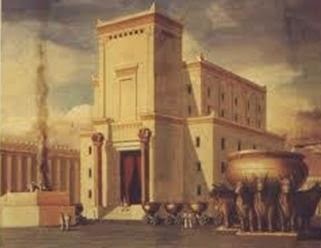Let's rebuild the temple!

You want to rebuild the Beit Hamikdash? A few problems with that, unless you believe in the idea that it will be rebuilt miraculously. But otherwise? Seriously, are we really going to go back to animal sacrifice and a priestly caste system? Those are ideas that were popular among all cultures in the ancient near east, were not unique to the Jews, and are rather distasteful when you take a few minutes to think about it. And what about the actual building? Trying to build the b eit hamikdash on the temple mount for the foreseeable future would spark a massive war. Not to mention that destroying the mosques there would be an archaeological crime, just like the Taliban destroying those Buddha statues, which is universally condemned. But here's an idea for actually building the third temple, in a realistic manner: Find a plot of land near the temple mount. Maybe on what was once the slope of that very mountain Let's say, a big open plaza that is in Jewish hands. Hmm,
